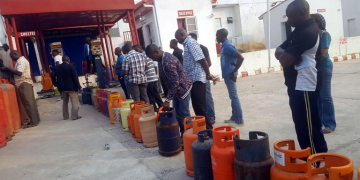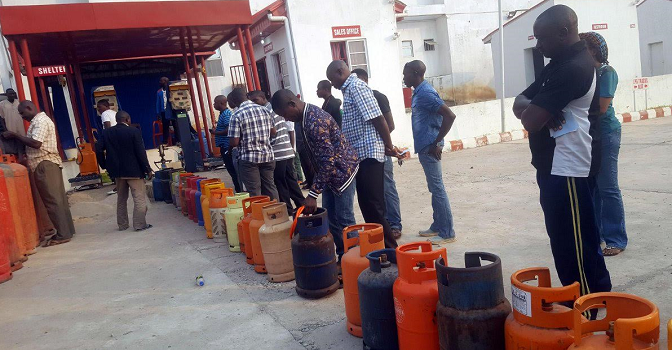The Nigerian Association of Liquefied Petroleum Gas Marketers (NALPGAM) has blamed some retailers for the recent spike in the price of Liquefied Petroleum Gas (LPG), also known as cooking gas, amid the ongoing supply shortage across the country.
During an interview on Channels Television’s The Morning Brief on Wednesday, NALPGAM’s National President, Oladapo Olatunbosun, stated that there had been no official increase in the price of LPG. He accused certain retailers of exploiting the temporary scarcity to inflate prices for their own gain.
“The price of gas has not officially gone up. What is happening is that some people are taking advantage of a short-term supply gap and the resulting increase in demand to make extra profit, which is wrong. As an association, we strongly condemn this practice,” Olatunbosun said.
He assured consumers that the situation would soon improve, expressing confidence that prices would return to normal once supply stabilises.
“By God’s grace, normalcy will be restored in the coming days, and Nigerians will continue to have access to affordable cooking gas,” he added.
Explaining the factors behind the shortage, Olatunbosun attributed it to what he described as an “artificial disruption” caused by maintenance activities at the Dangote Refinery and a recent strike by the Petroleum and Natural Gas Senior Staff Association of Nigeria (PENGASSAN).
According to him, the Dangote Refinery, which previously supplied about 50 trucks of LPG daily to different parts of the country, had to reduce operations temporarily for maintenance. This forced marketers to depend largely on depots in Apapa, Lagos, for supply.
“There was a time trucks spent up to two weeks at the Dangote yard before they could load products,” he noted.
He further explained that the PENGASSAN strike compounded the problem by preventing the offloading of LPG vessels due to the absence of officials responsible for inspecting the shipments.
“Production wasn’t completely halted, but since everyone turned to Apapa, all the depots there quickly ran dry,” he explained.
Olatunbosun expressed optimism that once full operations resume, the supply chain will stabilise and prices will revert to normal levels.















